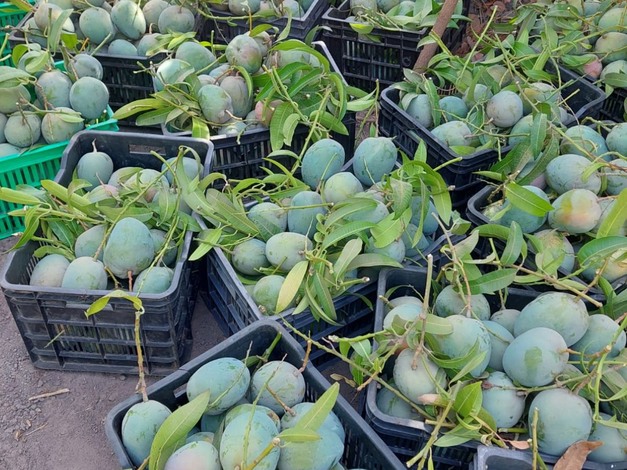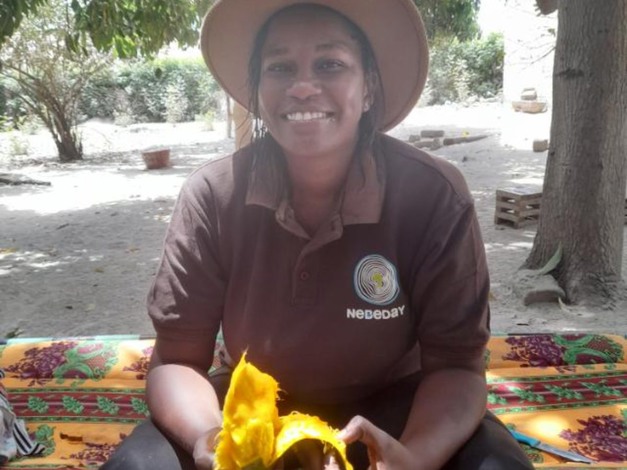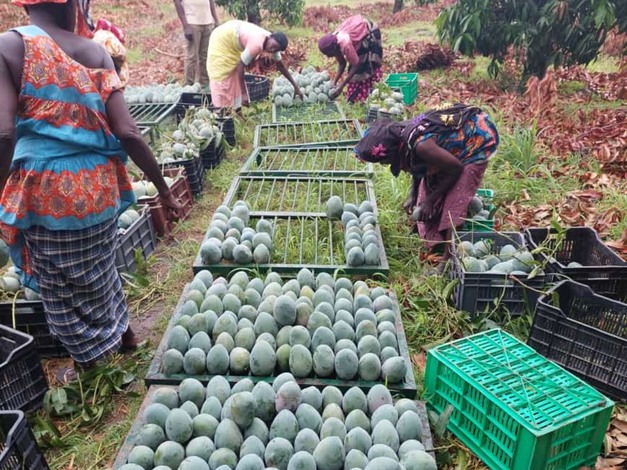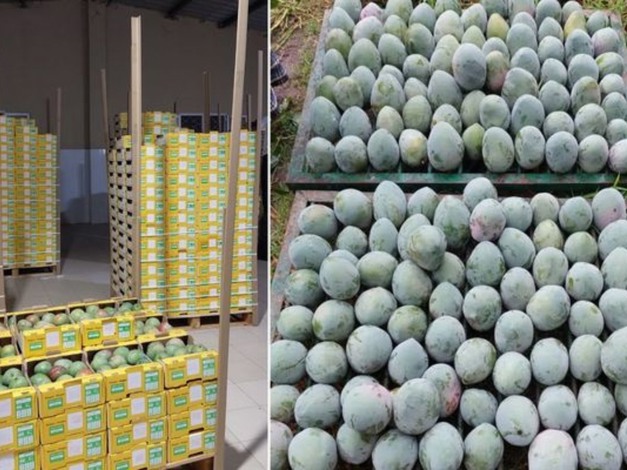The mango season in southern Senegal came to a close at the end of June, while it continues in central and northern Senegal. Aminata Dominique Diouf, a Senegalese mango exporter, describes a successful but eventful campaign.

"At Domaine Agricole de Nema, we sold out all our stocks and ended the export campaign on June 20, like most exporters in the southern region. After a complicated production process, exporting was also hectic, but we still ended the season on a high note," says Aminata.
She explains, "In terms of production, we had sufficient rainfall, but we were disrupted by phytosanitary problems, namely fruit flies", adds Aminata. We have successfully introduced new fertilizers and treatment products on part of our acreage, enabling us to increase yields by 15%."

On the marketing side, demand for Senegalese mangoes has been strong and stable, according to the exporter. "We were able to sell our entire production, thanks to strong demand and good-quality harvests. But some complications forced us to look for other markets. As part of its plan to combat fruit flies, the government introduced a tax on mango exports, to which both producers and exporters are subject. Many producers have therefore preferred to sell their harvests on the local market in order to avoid paying this tax."
Aminata continues: "As a result, exports to Europe were lower than expected, while exports to neighboring countries such as Mauritania and Morocco were much higher, as they are supplied by traditional "bana bana" markets. Volumes exported to Europe went in particular to France, Spain, Germany, the Netherlands, and Italy".

The mango export campaign was also disrupted by the demonstrations, roadblocks, and curfew that took place in the country in June, according to the exporter. "While we were operating at full capacity, exports were interrupted for a few days due to the events in the country. We weren't particularly worried, as it wasn't in anyone's interest for the economy to be paralyzed. We simply waited for calm to return before relaunching exports."
Aminata's assessment of the season is "overall positive, and promising", she says. "We're pleased with the new fertilizers we tested this year. We've recorded a very successful flowering phase. So we're going to adopt them for all our areas next year, which means we'll have more yield and volume."

As for markets, Aminata announces her intention to do more business with countries in the region. "We've intensified our efforts to approach the Moroccan market. We've made several visits and met with Moroccan importers, and we're on track to do more business with this very interesting market. We are also continuing to strengthen our position in our established markets in Western Europe."
Aminata concludes: "Our biggest concern for next season is the fruit fly tax issue. The government has promised to reopen discussions on this subject at the end of the campaign in the rest of the country, and we'll see what happens."
For more information:
Aminata Dominique Diouf
Domaine Agricole du Nema
Tel: +221 77 480 42 32
Email: [email protected]
